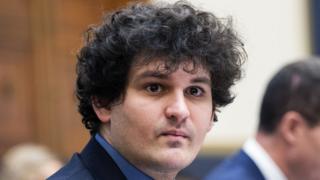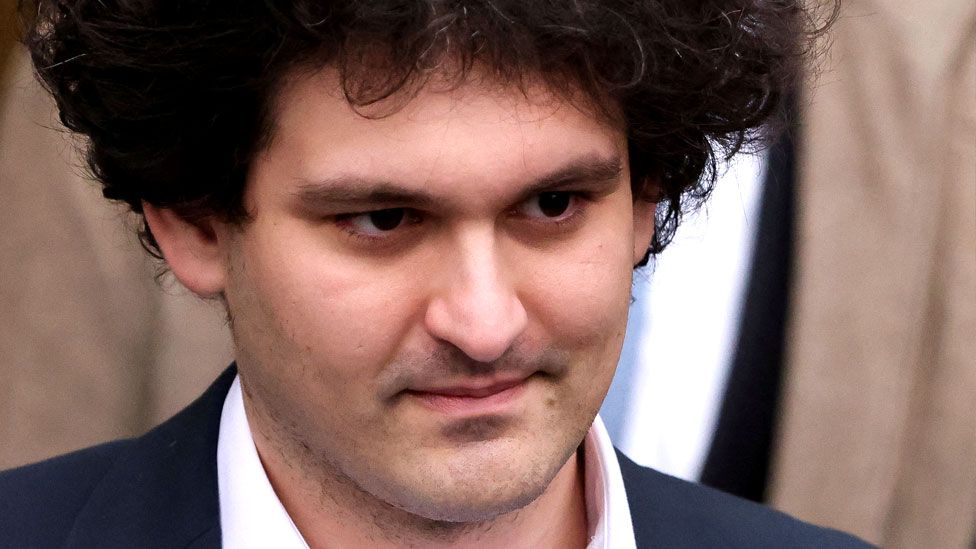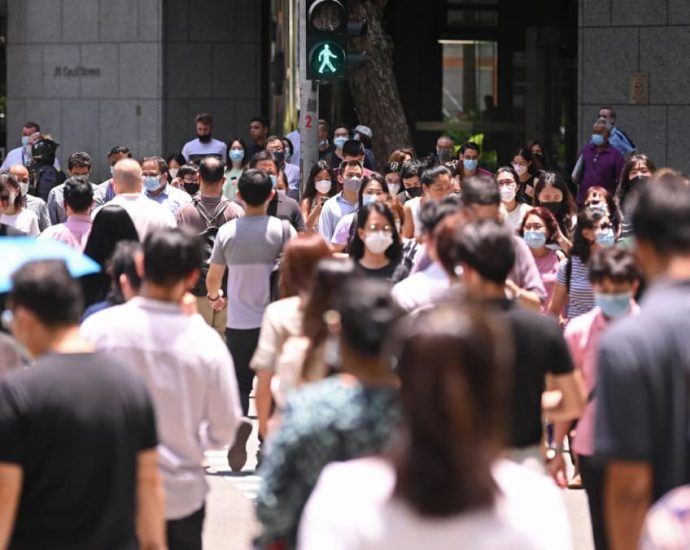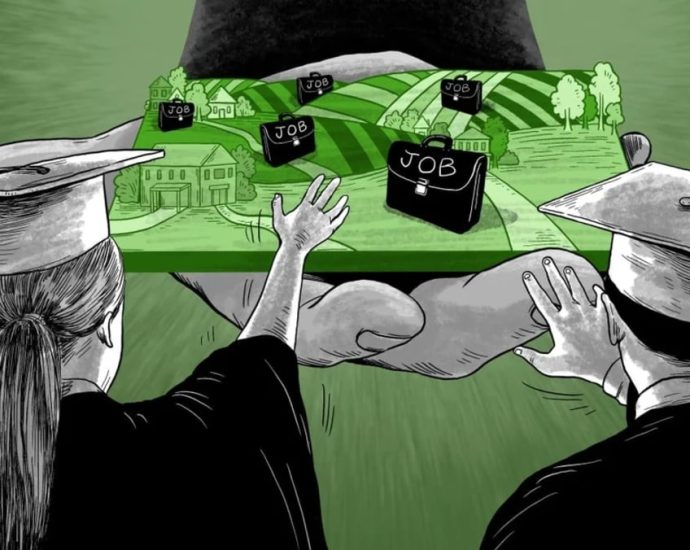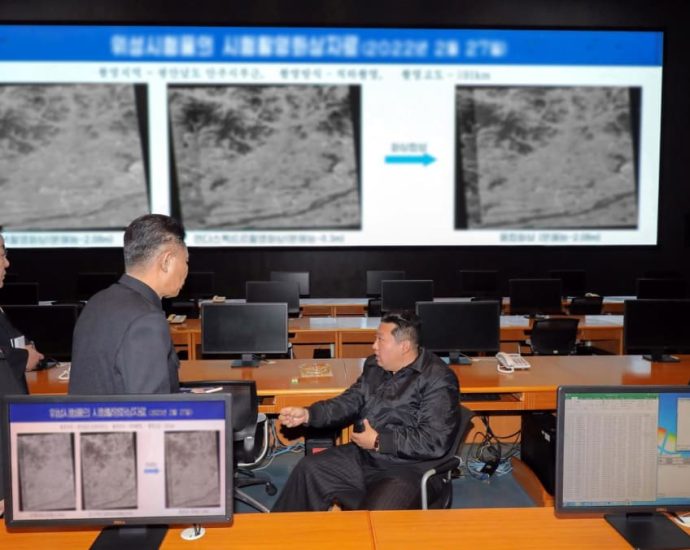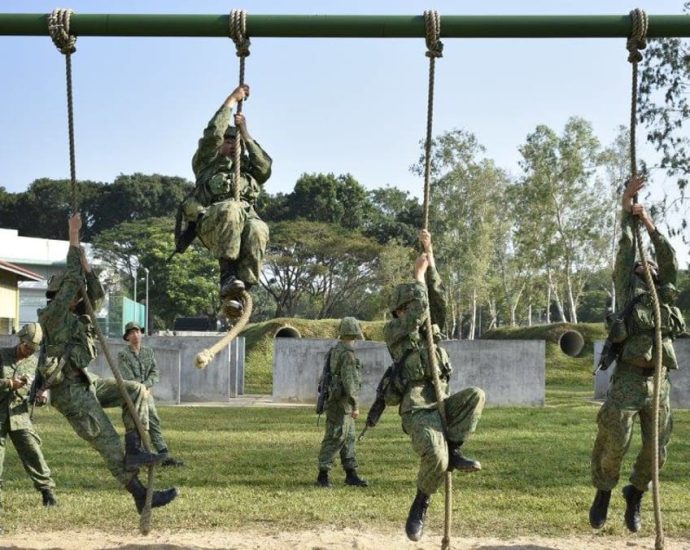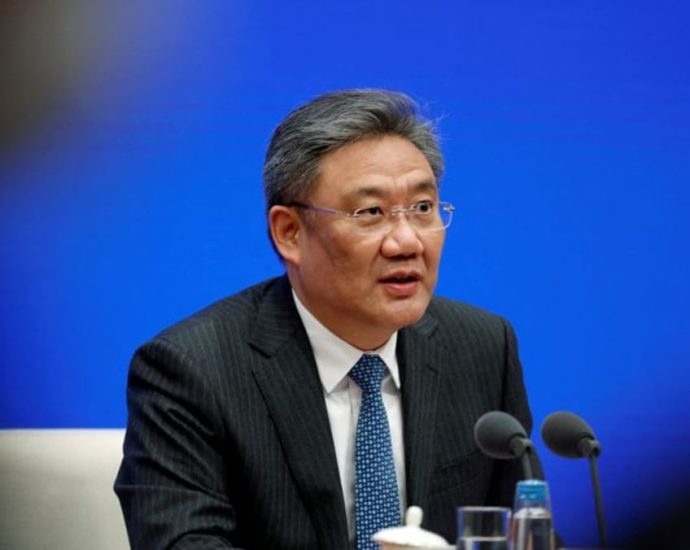FTX: Singapore state fund Temasek cuts pay after failed investment
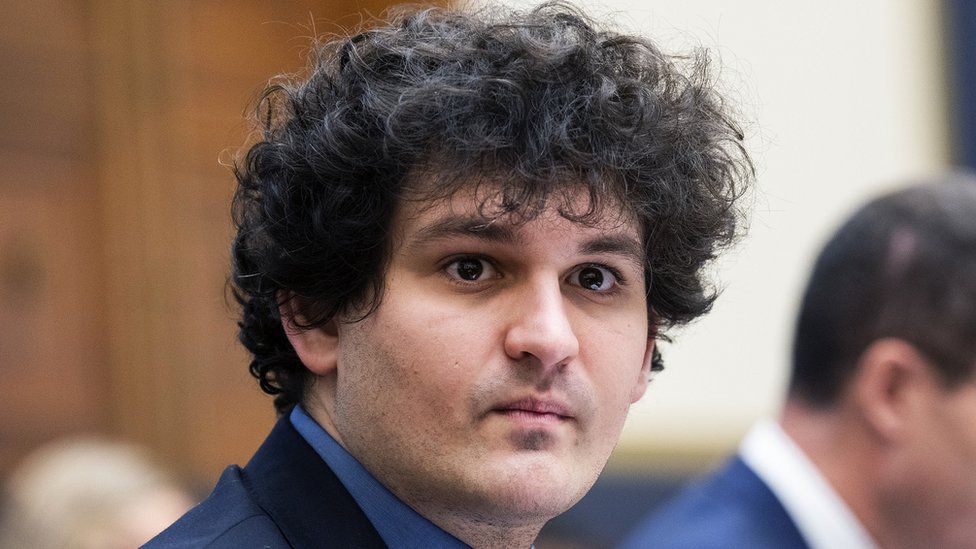 Getty Images
Getty ImagesSingapore state-owned investment fund Temasek Holdings says it has cut the pay of staff responsible for its investment in cryptocurrency exchange FTX, which collapsed last year.
Last year, the fund wrote off all of the $275m (£222.8m) it invested in FTX.
Prosecutors have accused FTX’s former chief executive Sam Bankman-Fried of orchestrating an “epic” fraud which may cost investors billions of dollars.
Mr Bankman-Fried has pleaded not guilty to the charges.
“The investment team and senior management, who are ultimately responsible for the investment decisions made, took collective accountability and had their compensation reduced,” Temasek said in a statement on Monday.
The sovereign wealth fund also said it was “disappointed with the outcome of our investment, and the negative impact on our reputation.”
Temasek did not indicate how much salaries were reduced by.
It had invested $210m and then another $65m in FTX in two funding rounds between October 2021 and January 2022.
Last year, the state-owned fund said that before making those investments it had spent eight months evaluating the cryptocurrency exchange. This included the review of an audited financial statement “which showed it to be profitable.”
As of March 2022, Temasek was worth more than S$403bn ($298.1bn; £241.3bn), so the money it had put into the cryptocurrency platform accounted for a small percentage of its investments.
However, Singapore’s deputy prime minister Lawrence Wong said in December that Temasek’s losses in FTX had caused damage to the fund’s reputation.
“The fact that other leading global institutional investors like BlackRock and Sequoia Capital also invested in FTX does not mitigate this,” added Mr Wong, who is also the country’s finance minister.
Sovereign wealth funds are like a savings account for a country, and they typically invest in shares, currencies, property or other assets.
FTX, which a year ago was valued at $32bn, filed for bankruptcy protection in November. It has been estimated that $8bn of customer’s funds was missing.
Mr Bankman-Fried, who co-founded FTX in 2019, was one of the most high-profile figures in the cryptocurrency industry, known for his political ties, celebrity endorsements and bailouts of other struggling firms.
US federal prosecutors have accused Mr Bankman-Fried of stealing billions of dollars from FTX users to pay debts at his other firm, Alameda Research, and to make other investments.
In December, prosecutors announced eight criminal charges against Mr Bankman-Fried, including wire fraud, money laundering and campaign finance violations. Another five charges were levied against him in March. Financial regulators have also brought claims against Mr Bankman-Fried.
FTX co-founder Gary Wang and Caroline Ellison, the former head of Alameda, have also been charged over their alleged roles in the company’s collapse.
Mr Bankman-Fried was arrested in December in the Bahamas, where he lived and FTX was based.
In an interview with BBC News just days before his arrest, he said: “I didn’t knowingly commit fraud. I don’t think I committed fraud. I didn’t want any of this to happen. I was certainly not nearly as competent as I thought I was.”
This video can not be played
To play this video you need to enable JavaScript in your browser.
Related Topics
-
-
18 January
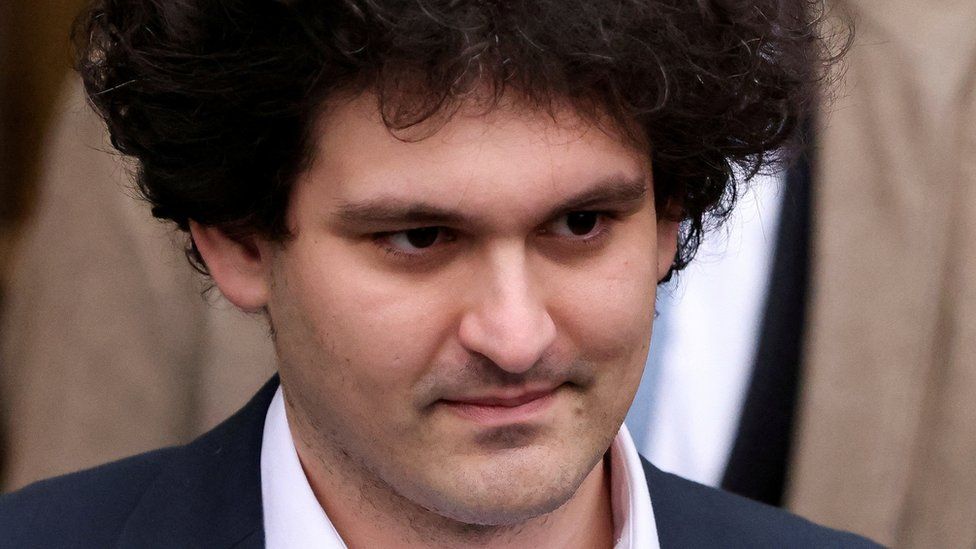
-
-
-
3 January
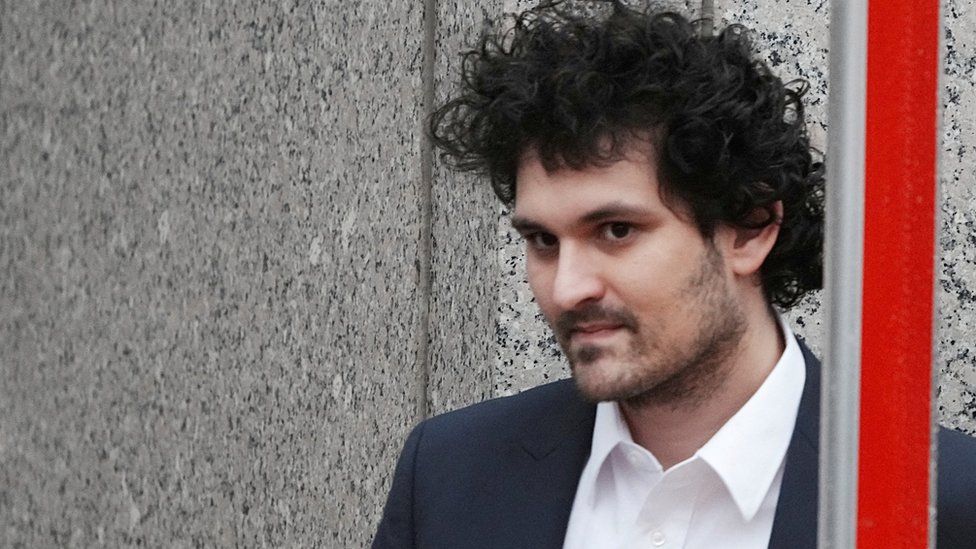
-
-
-
18 December 2022
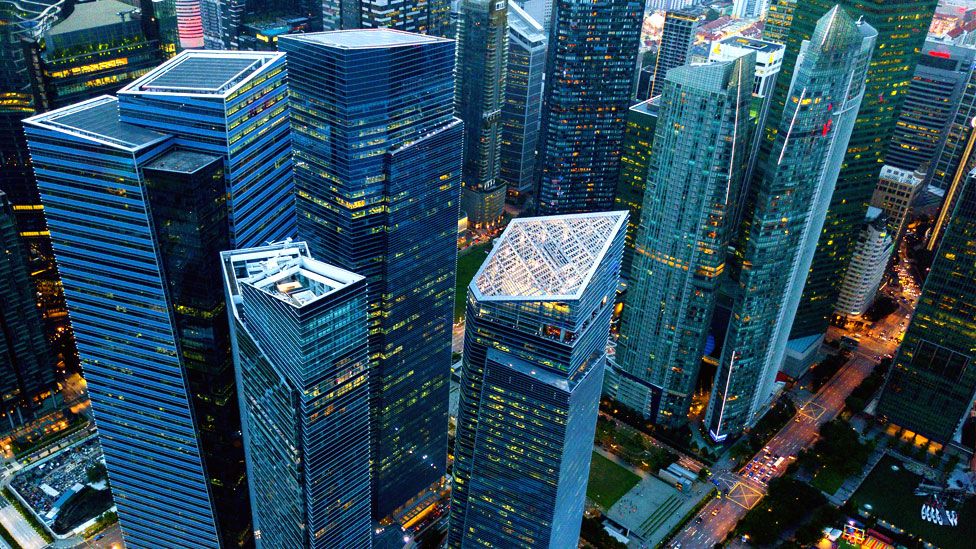
-
-
-
13 December 2022
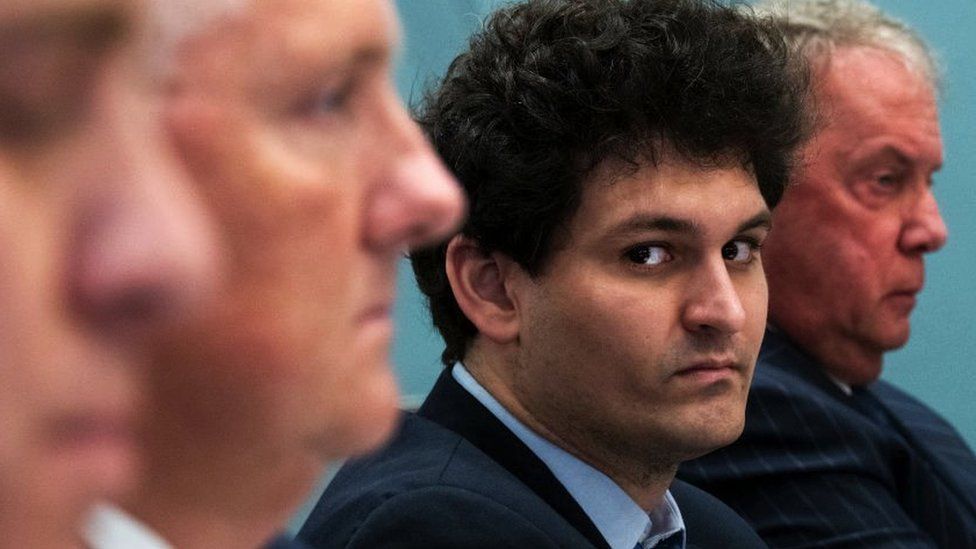
-
How Erdogan held on to power

Recep Tayyip Erdogan will remain president of Turkey for another five years after winning Sunday’s run-off election over his longtime rival, Kemal Kilicdaroglu. If he serves the full five-year term, he will have held power for 26 years – almost the entire history of Turkey in the 21st century.
What is astonishing is how the majority of Turkish people elected Erdogan despite a worsening economy and now chronic hyperinflation that would likely bring down any government in a democratic country.
So how did Erdogan win the election and, more significant, what is likely to happen in the country in the foreseeable future?
Free but far from fair
The election was free in that political parties could put forth nominees on their own and carry out campaigns. Parties also had the right to have representatives in every polling station to ensure the votes were counted correctly. And voters were free to vote.
However, the election was far from fair.
First, a potential leading rival in the race, Ekrem Imamoglu, was sentenced in December to more than two years in prison on a charge of “insulting public figures.”
Imamoglu, the popular mayor of Istanbul, dealt Erdogan’s party a rare defeat in the 2019 Istanbul elections. Polls had shown he could win against Erdogan in the presidential election by a comfortable margin.
Some argue the court ruling was politically motivated. With Imamoglu out of the picture, the opposition had to coalesce behind Kilicdaroglu, the weakest of all possible high-profile candidates.
Erdogan also has an almost ubiquitous grip over the Turkish media, engineered through Fahrettin Altun, the head of media and communication at the presidential palace.
Turkish media are either directly owned by Erdogan’s relatives, such as the popular Sabah newspaper managed by Sedat Albayrak, or controlled through managing editors appointed and monitored by Altun. Some independent Internet news sites such as T24 practice self-censorship in order to remain operational.
With this massive media control, Erdogan and his men ensured he had the most television airtime. Erdogan was depicted in the media as a world leader advancing Turkey by building airports, roads and bridges. He was put in front of dozens of journalists on TV, but all the questions were prepared in advance and Erdogan read his answers through a prompter.
Altun also orchestrated a massive smear campaign against Kilicdaroglu. The opposition leader received minimal airtime, and when he was in the media, he was depicted as an inept leader unfit to rule the country.
Altun not only controlled the conventional TV channels and print media, but also social media. On Twitter, a very influential platform in Turkey, Altun used bots and an army of paid trolls and influencers to seek to control the dialogue.
And it worked. Sufficient numbers of voters were swayed through confusion and fear that the country would be far worse if Kilicdaroglu was elected.
Last, there was the potential for fraud due to the non-transparent way the election results are processed. Once each ballot box is counted, the ballot and result sheet are transported by police in cities and the military in regional areas to the Electoral Commission. Both the police and military are under Erdogan’s tight control.
The results are then reported only through the state-owned Anadolu Agency, while in the past they were reported by multiple independent agencies.
Even if no evidence of fraud emerges in this election, the specter of it could put in doubt the integrity of the entire electoral process.
Staunch support from religious voters
There are two other factors that were decisive in the elections.
The first is the support Erdogan received from Sinan Ogan, who was third in the first round of the presidential election two weeks ago, with 5.2% of the votes. Erdogan persuaded Ogan to throw his support to him.
The second and most important factor was the way Erdogan was viewed in an almost mythical fashion by conservative and religious voters. For them, he is a religious hero and savior.
The religious population in Turkey has long suffered persecution in the name of secularism.
For them, Kilicdaroglu and his Republican People’s Party symbolized that persecution. Although Kilicdaroglu abandoned the party’s previous strict secular policies, these voters never forgave it for preventing Muslim women from wearing the headscarf in educational and state institutions and keeping religion out of public life and politics for decades.
The conservative and religious right in Turkey sees Erdogan as a world leader and a hero who struggled against ill-intentioned forces, both internally and externally, to make Turkey great again.
What is likely post-election?
Turkey desperately needed a change of government and a breath of fresh air. Now the social, political and economic suffocation is likely to get worse.
Erdogan had promised a Turkish revival by 2023, which is the 100th anniversary of the republic’s founding. Turkey was supposed to enter the top 10 economies in the world by then. However, Turkey barely sits in the top 20, at 19th.
The economy has experienced a significant downturn in the past three years. The Turkish lira has plummeted in value, leading to a dollar-based economy.
But dollars are hard to come by. The Turkish Central Bank kept the economy afloat by emptying its reserves in the last few months for the elections. The Central Bank has been running a current-account deficit of US$8 billion to $10 billion every month, and its reserves last week fell into the negative for the first time since 2002.
Now Erdogan has to find money. He will resort to high-interest foreign loans and embark on a diplomatic spree of the oil-rich Muslim countries to draw some of their funds to Turkey. The uncertainty around how successful these endeavors will be and their likely short-term gain may throw the Turkish economy into recession.
For the people of Turkey, this could mean massive unemployment and a higher cost of living. The inflation rate had reached a 24-year high of 85.5% last year, and may go even higher, as the cash-strapped government continues to print digital money to pay for its large bureaucratic workforce.
On foreign policy, Erdogan will continue to try to become a regional power independent of the North Atlantic Treaty Organizaion, the European Union and the US. He will likely continue to strengthen Turkey’s ties with Russian President Vladimir Putin, which has been a worry for Turkey’s Western allies.
What does the future hold?
This will be Erdogan’s absolute last term in office, according to the Turkish constitution, and it could possibly be cut short.
The 69-year-old president has many health problems. He is becoming increasingly physically frail, finding it hard to walk, and his speech often slurs. In coming years, his health may get worse and he may have to hand over his presidency to a trusted deputy.
The other possibility is that potential leaders in his Justice and Development Party (AKP) could decide to carry out a party coup to topple Erdogan before his term is up, so they can garner public support ahead of the 2028 presidential election.
While there may be some political stability in post-election Turkey for now, the country will be in economic, social and political turmoil for the foreseeable future.
Mehmet Ozalp is associate professor in Islamic Studies, director of The Centre for Islamic Studies and Civilization, and executive member of Public and Contextual Theology at Charles Sturt University in Australia.
This article is republished from The Conversation under a Creative Commons license. Read the original article.
MAE app will enforce Secure2u for transaction approval starting July
There will be a 12-hour activation period when switching devices
Maybank will also introduce a Kill Switch feature for debit cards soon
All Secure2u authorisations will be moved to Maybank’s MAE app on 1st July 2023, the single point of authorisation through the MAE app which is tied to one device per account. This means…Continue Reading
Singapore wages up 0.4% in real terms in 2022, pace of growth ‘significantly dampened’ by inflation
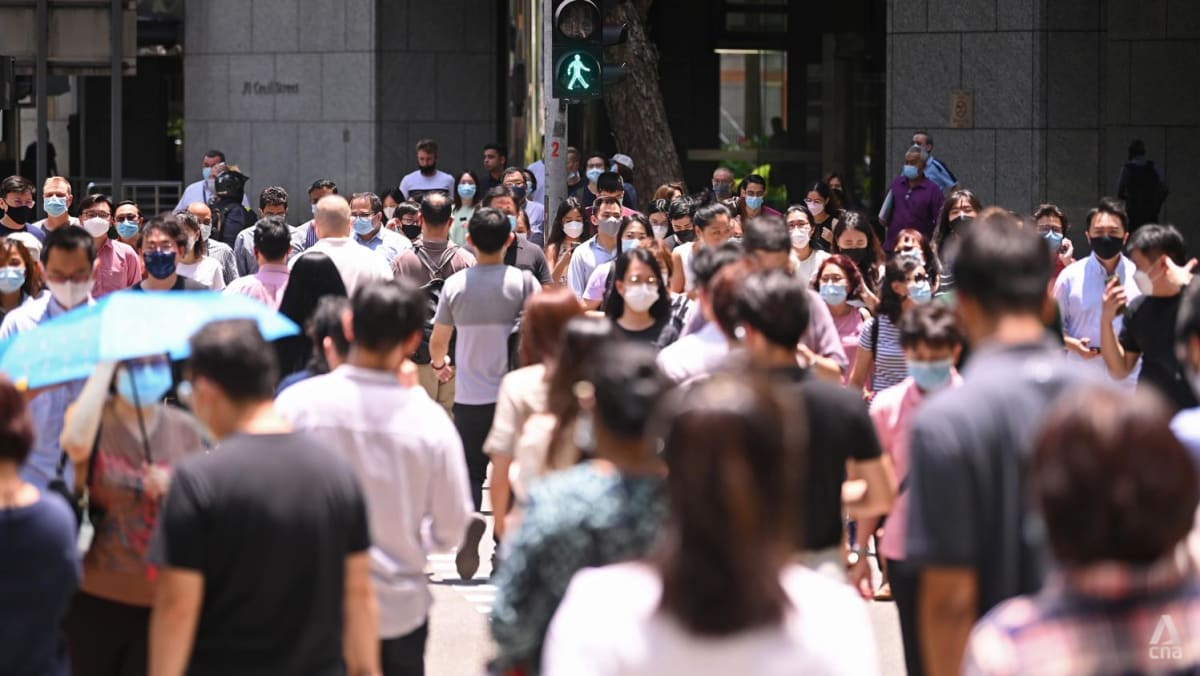
SINGAPORE: Real wages in Singapore grew 0.4 per cent in 2022, lower than the 1.6 per cent in the preceding year, the Ministry of Manpower (MOM) said on Monday (May 29).
The pace of real wage growth last year was “significantly dampened” by inflation. The inflation rate in 2022 was 6.1 per cent, higher than the 2.3 per cent recorded the preceding year.
Nominal total wages – including employers’ Central Provident Fund (CPF) contributions – of full-time resident employees who had been with the same employer for at least one year rose by 6.5 per cent last year.
Nominal total wages do not take into account inflation. The 6.5 per cent increase in 2022 was “significantly higher” than the 3.9 per cent in 2021, and was the highest in a decade.
“This reflected the efforts by firms to restore wages of some employees who experienced wage cuts during the pandemic years, as well as give higher wage increases to other employees to retain staff amidst competition for workers,” said MOM.
MORE PROFITABLE FIRMS
“As the Singapore economy continued to grow in 2022, there was a strong increase in the proportion of profitable firms. As a result, more firms were able to raise their employees’ wages in 2022 compared to 2021,” said the ministry.
The proportion of profitable establishments rose for the second consecutive year to 83.9 per cent in 2022. The proportion of establishments that gave wage increases rose from 60 per cent in 2021 to 72.2 per cent in 2022.
This was slightly higher than the pre-pandemic level in 2019 of 69.2 per cent, noted MOM.
Among establishments that gave wage increases, the magnitude of increase was larger in 2022 compared with 2021.
Those that cut the wages of their employees remained in the minority at 5.2 per cent, said the Manpower Ministry. Among them, the magnitude of wage cut was also smaller in 2022 than the previous year.
The remaining 22.6 per cent of firms left the wages of their employees unchanged.
TOTAL WAGE GROWTH TO MODERATE IN 2023
“Against the backdrop of the global economic slowdown and a more uncertain business environment, firms are likely to take a cautious approach regarding salary increments,” said MOM.
“Hence, total wage growth is expected to moderate in 2023.”
Firms are likely to take a cautious approach regarding salary increments, against the backdrop of the global economic slowdown and a more uncertain business environment, the ministry added.
But more companies expressed an intention to raise their employees’ wages in March 2023 compared with December 2022, said MOM, based on recent polls on wage expectations conducted in the first quarter of this year.
“To remain competitive and resilient amidst these global developments, we encourage firms and workers to press on with business and workforce transformation, and make full use of government programmes to adapt to the changing environment,” said the ministry.
“The government also encourages all firms to implement the Flexible Wage System as the uncertainties ahead continue to underscore the need for resilience and flexibility in wage structures.”
As more Chinese graduates explore rural jobs, comparisons with Mao Zedong’s campaign fail to pass muster
Li said most participants from her university in Zhuhai would work as teachers or volunteers at village schools, or village cadres helping to monitor the risk of people returning to poverty. After two years of service, they could choose to stay or pursue new jobs elsewhere, she said, adding thatContinue Reading
Kein Ai Ng joins TrueMoney Malaysia as Head of Marketing and Partnerships
She was formally from Hong Leong Bank
Achievements include management of a US$4.496 bil portfolio
TrueMoney Malaysia has appointed Kein Ai Ng (pix), as their Head of Marketing and Partnership for Malaysia. Kein Ai was previously from Hong Leong Bank, where she was the Head of Merchant Sales in Malaysia.
At Hong Leong Bank, Kein…Continue Reading
Japan aims to destroy any North Korean missile after it warns of satellite launch
North Korea has also undertaken a series of missile and weapons tests in recent months, including a new, solid-fuel intercontinental ballistic missile. North Korea informed the Japanese coast guard of the planned launch between May 31 and Jun 11, a coast guard official told Reuters, confirming a report by publicContinue Reading
All national servicemen to get up to S$200 increase in NS allowance
SINGAPORE: All national servicemen in the Singapore Armed Forces (SAF), Singapore Police Force (SPF) and Singapore Civil Defence Force (SCDF) will receive a S$125 (US$92) to S$200 increase in their National Service (NS) allowance. The increase will take effect on Jul 1 and is dependent on their rank and vocation,Continue Reading
China urges Japan to halt export restrictions on chips
BEIJING: Chinese Commerce Minister Wang Wentao urged Japan to halt semiconductor export controls, calling it a “wrongdoing” that “seriously violated” international economic and trade rules, a statement from his ministry said on Monday (May 29). China’s latest condemnation of the export restrictions was made during Wang’s talks with Japanese TradeContinue Reading
Customers report issues with StarHub TV broadcast on final weekend of English Premier League fixtures
SINGAPORE: Customers reported issues with StarHub’s broadcast service on Sunday (May 28) during the final weekend of the English Premier League season. Data on the DownDetector website showed outage reports starting shortly before the 11.30pm kickoff time for the 10 matches, spiking to more than 2,400 reports at about 11.37pm.Continue Reading

